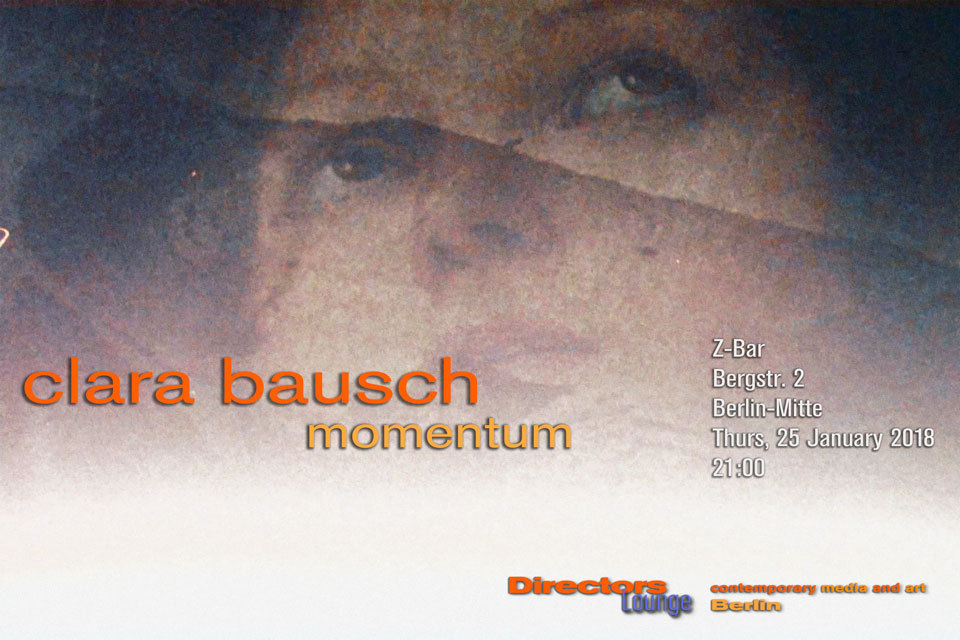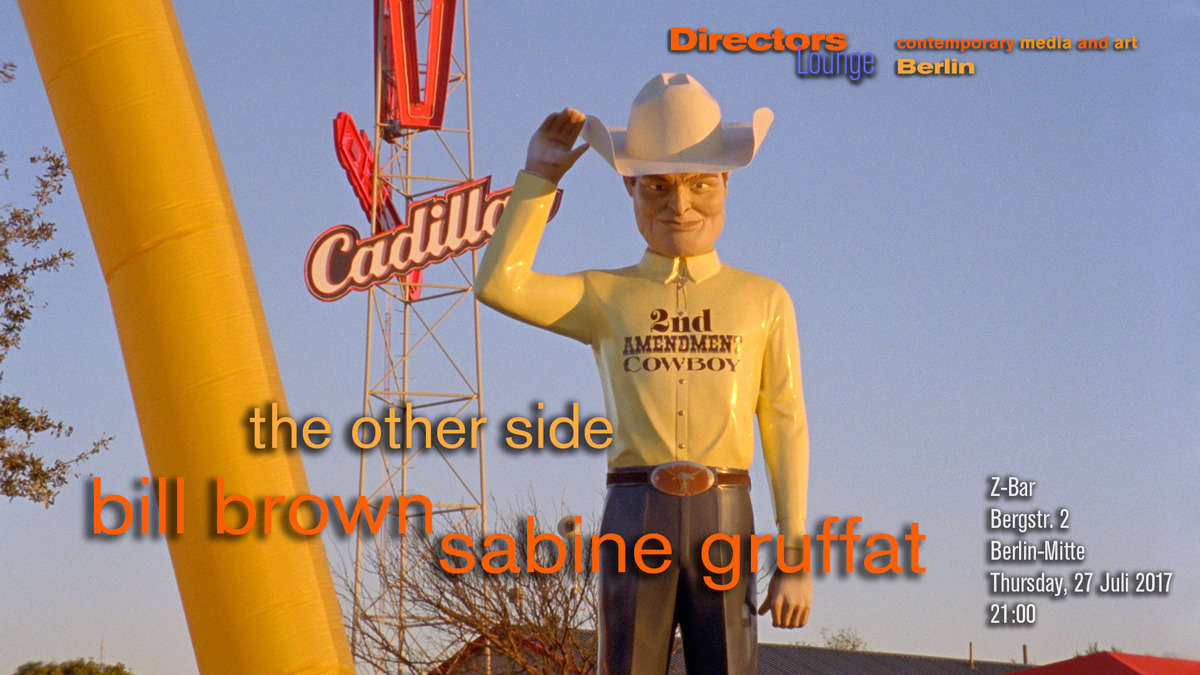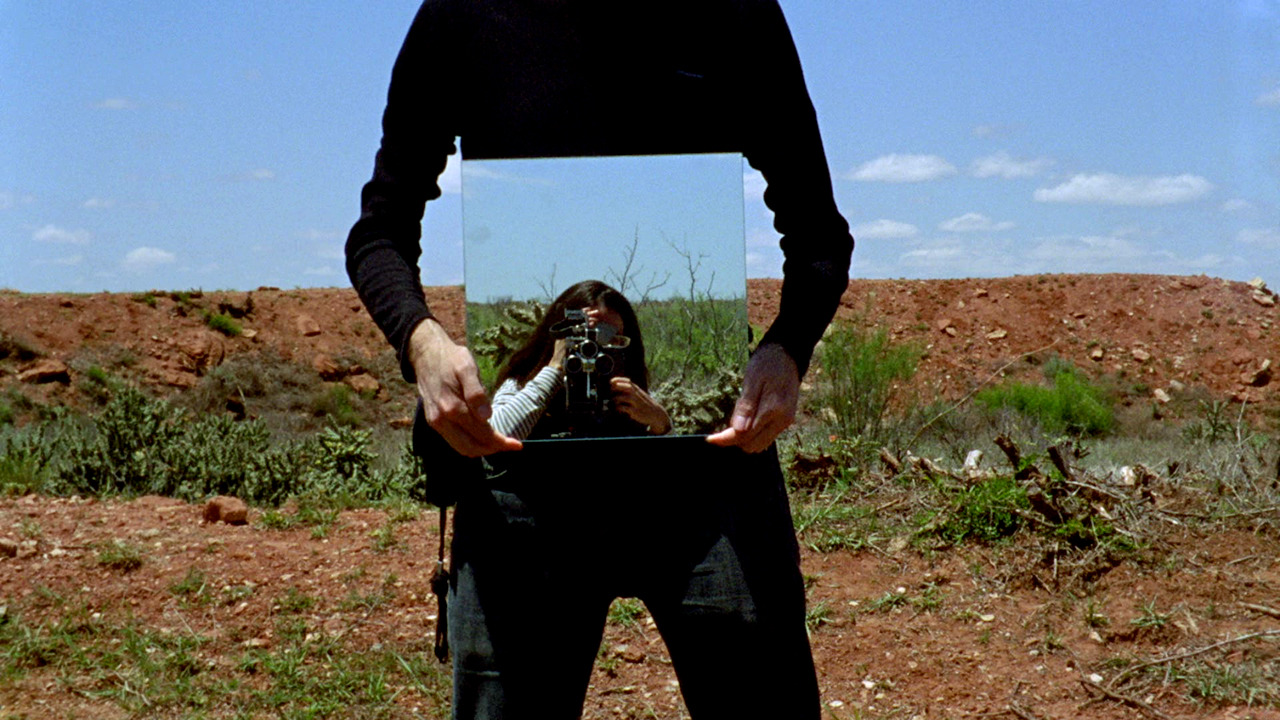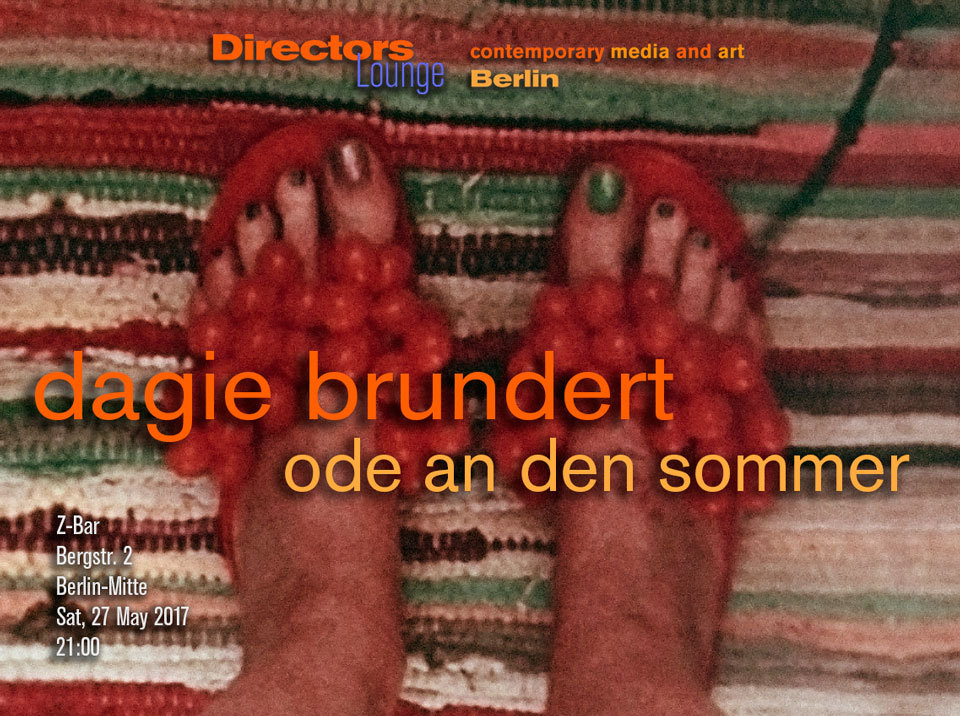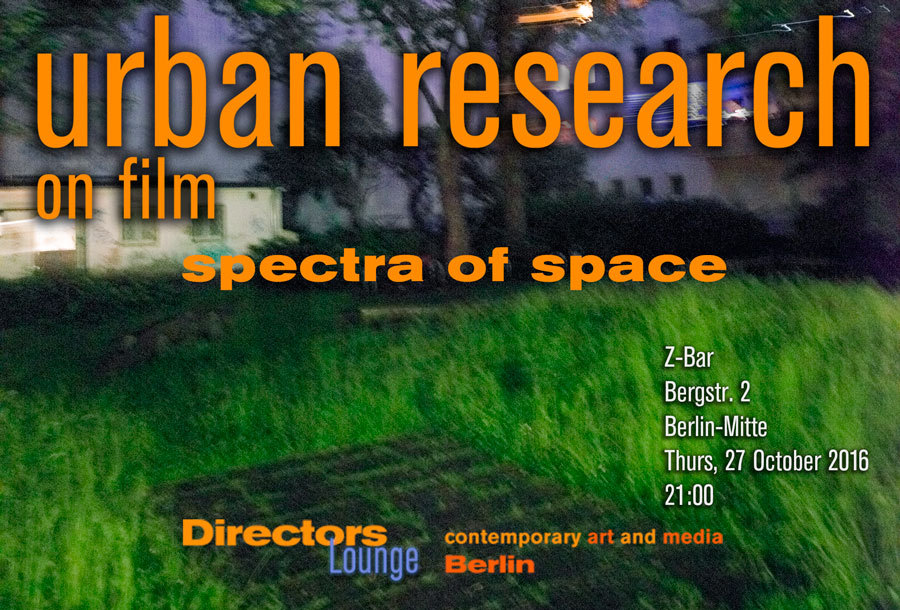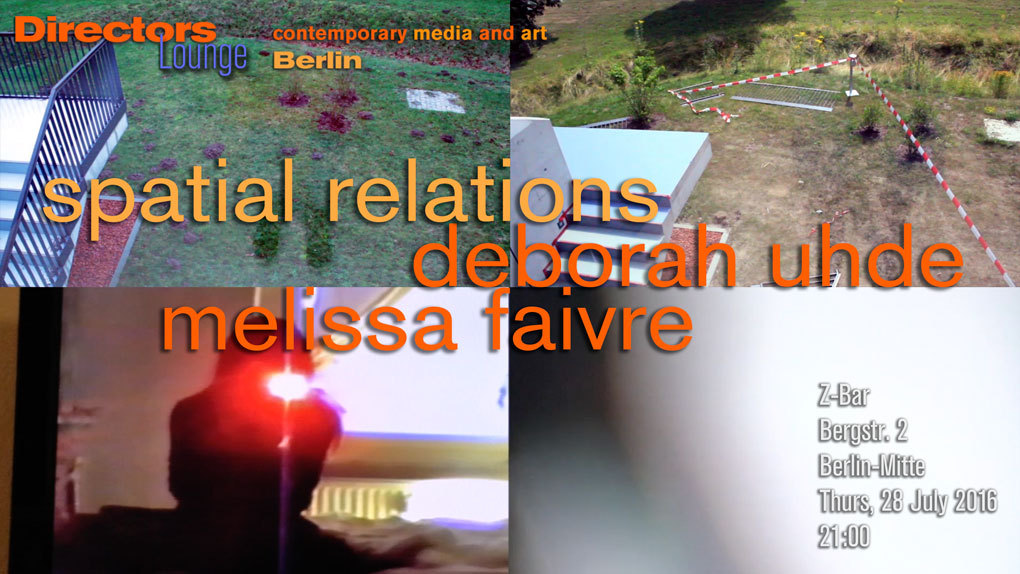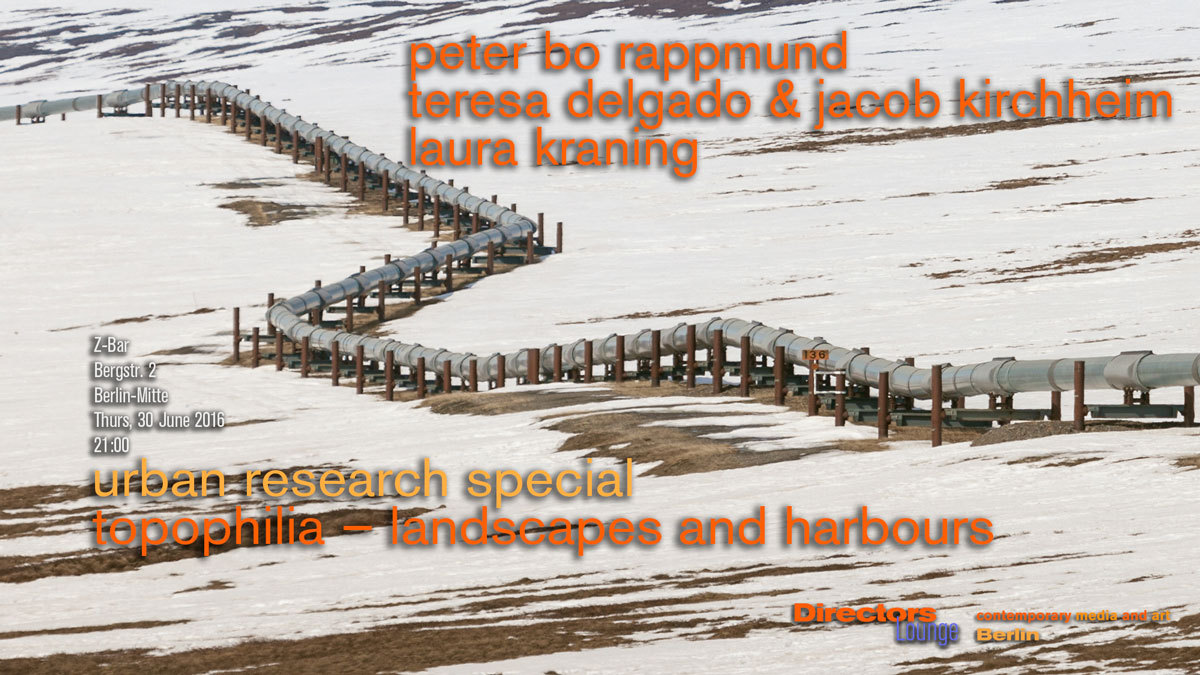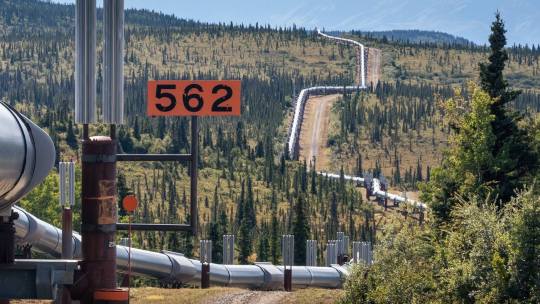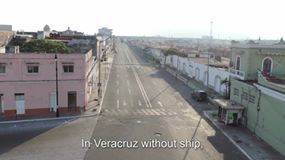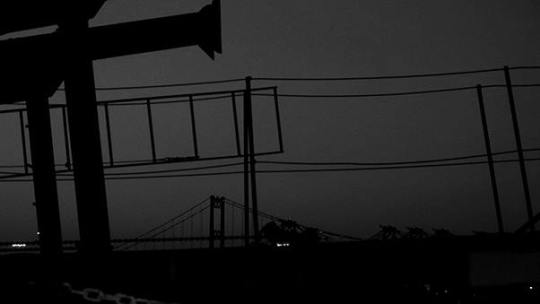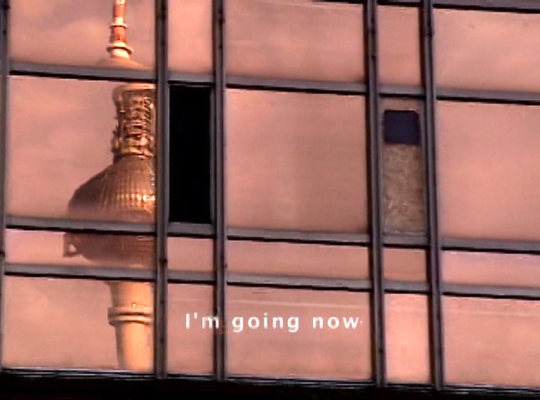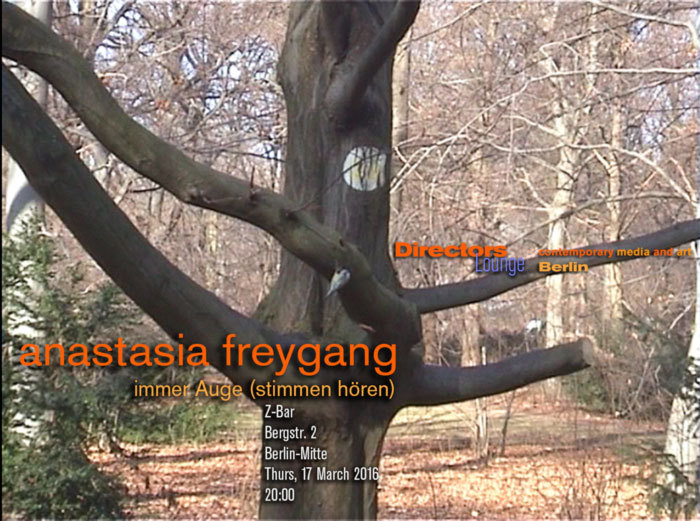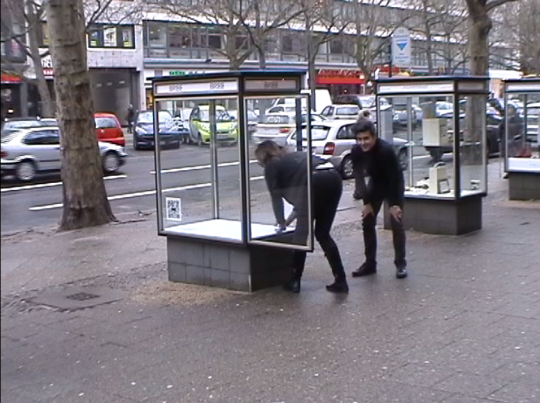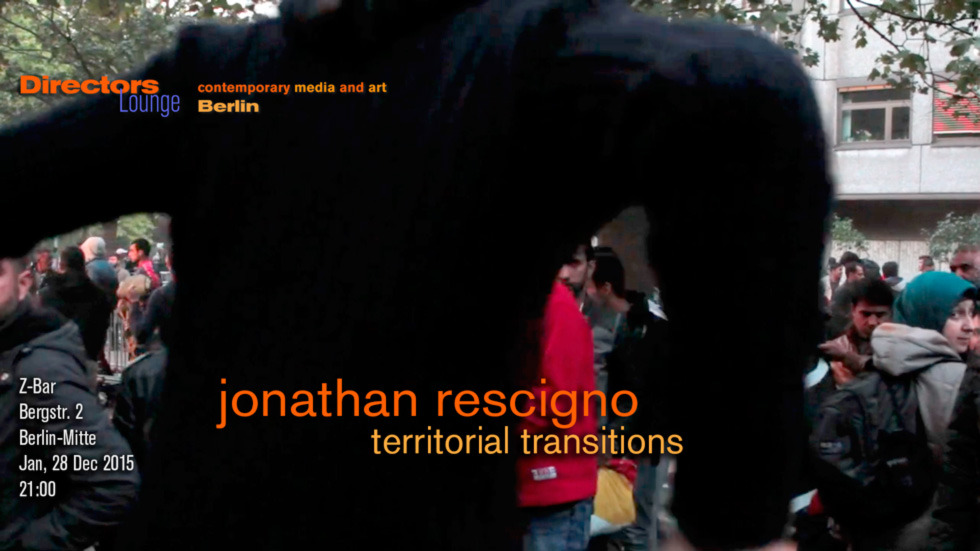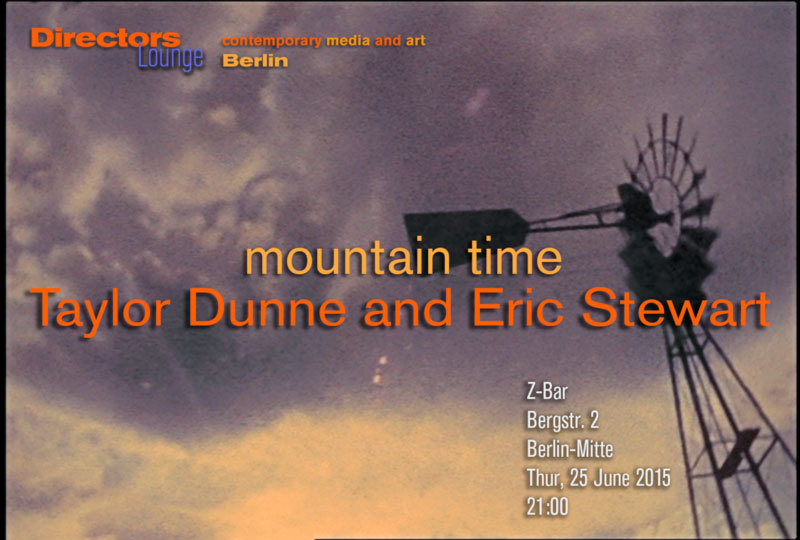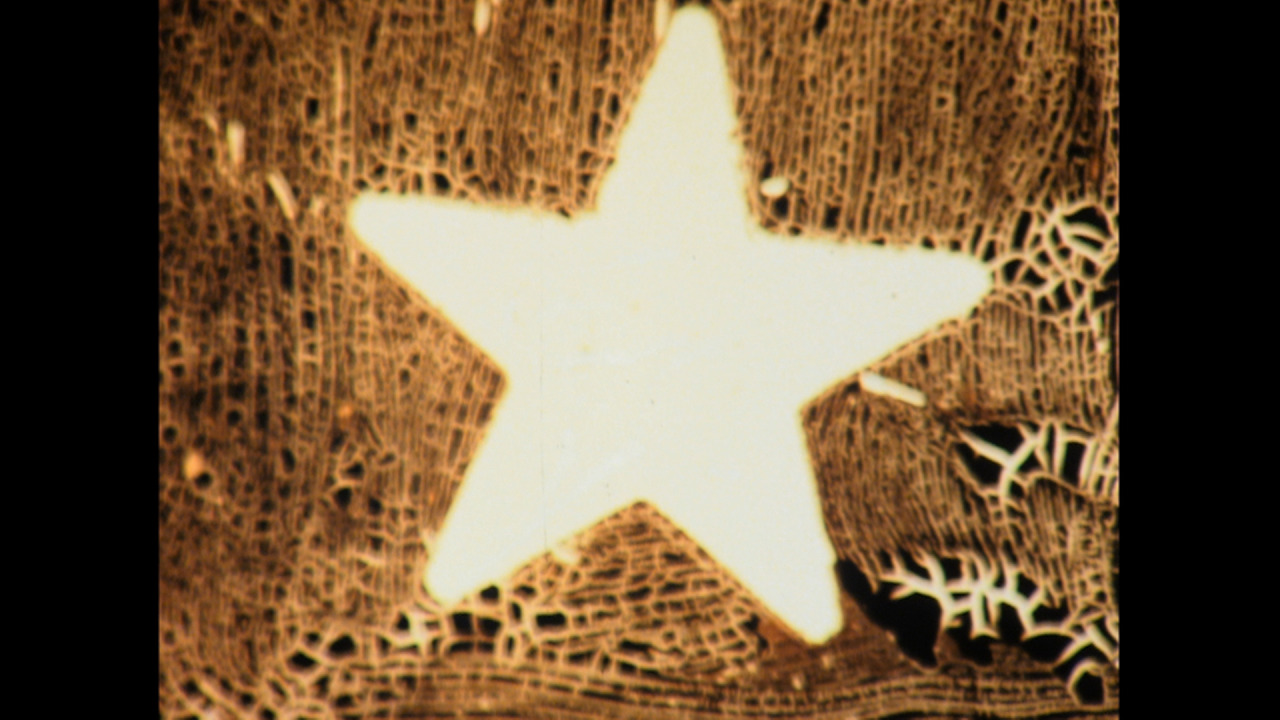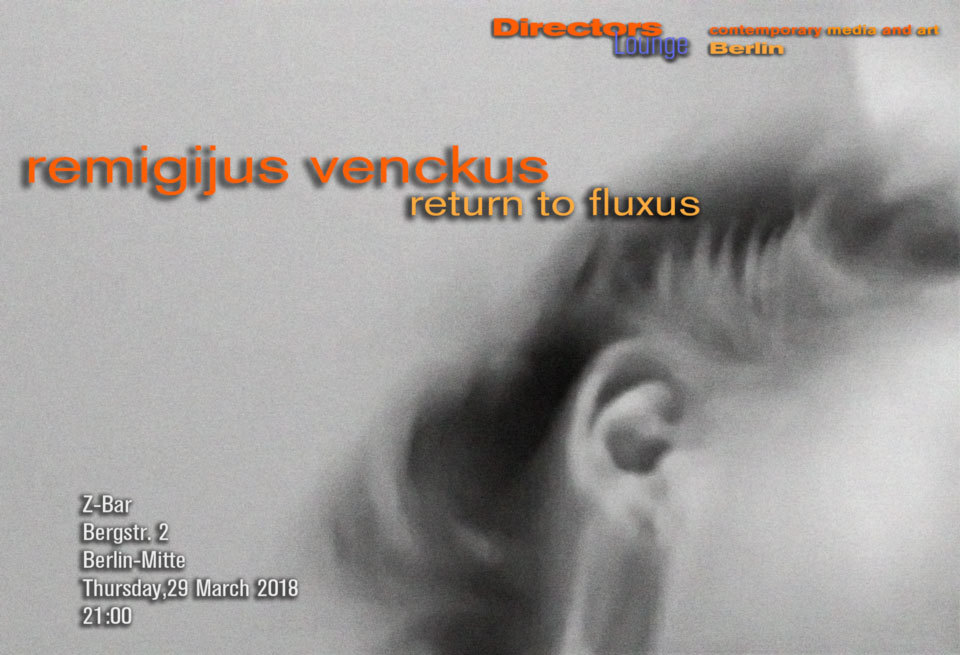
Directors Lounge Screening
RETURN TO FLUXUS
Remigijus Venckus
Thursday, 29 March 2018, 21:00
Z-Bar
Bergstraße 2
10115 Berlin-Mitte, Germany
Joining us from Lithuania, Remigijus Venckus will present his work at Directors Lounge Screening at Z-Bar. The artist presents his videos on occasion of an exhibition at the gallery ‘World in A Room’ in Berlin. The films are mostly short captured impressions from daily life, recorded and edited in the style of experimental film with references to films from early 60s and 70s, however, in a much more playful manner and stance.
In reference to the video program of R. Venckus, it may be interesting to remark that Jonas Mekas and George Maciunas, US artists, connected with ‘avant-garde film’ and Fluxus, are both originally from Lithuania and were first connected with the Lithuanian emigration community in the United States. Mekas talks about this in his film ‘Walden / Lost, Lost, Lost’ (1969 / 1976). In his opinion, he arrived in New York, and on the art scene, only after he left the group of expatriates gathering in N.YC. Later on in post-soviet era, after 1989, it seems that at least part of the art scene in Lithuania has embraced the two artists and somehow repatriated them, together with Fluxus.
R. Venckus makes direct reference to Fluxus and the experimental films of the 60’s. In contrast to those artists, however, R. Venckus’ films play with forms and references in a much lighter way than those artists’ from the 60’s, whose humor was acidly addressed at the opposed notion of ‘high art’. Mekas, as director of the Anthology Film Archive, for example, tried hard to create a canon of avant-garde in order to establish the film as a serious art form. Those struggles seem to be far in the past, when looking at R. Venckus’ early films.
However, the landscapes appearing in the artist’s films mostly seem to be dark and grey, not happy. The struggles may be different, less about art concepts and the seriousness of a style, but a struggle with society and with a new kind of conservatism in art and in public discourse, nonetheless. His more recent films address those struggles differently, and in a more direct way. ‘My success story’ (2013), an autobiographical film essay, has never been shown in Lithuania yet. The film talks about the difficulties of fighting against prejudices and homophobia in the surroundings of conservative academia. His newest film ‘The Letter’ (2018), on the other hand, turns a love letter into a poetic sound and image piece of dance by a male dancer intermitted with urban landscapes, and during the winter time. The voice, reading, or better, reciting the words of the letter turn the movements of the dance into a song of praise and lament. The addressee stays unknown to the viewer, or the viewer may find himself being addressed as a possible sender or recipient of the letter.
Remigijus Venckus will be present for Q&A at the screening. Curated by Klaus W. Eisenlohr.
‘Return to Fluxus’ is a video art program of Remigijus Venckus created in a period of 2002 – 2018. The program will be presented at the ‘Directors Lounge Screening’ at Z-Bar 29 March 2018, 9pm.
Artist Link:
Ph.D. Remigijus Venckus
http://www.venckus.eu/
http://en.venckus.eu/video/
Links:
Directors Lounge http://www.directorslounge.net
Richfilm http://www.richfilm.de/currentUpload/
Z-Bar http://www.z-bar.de

